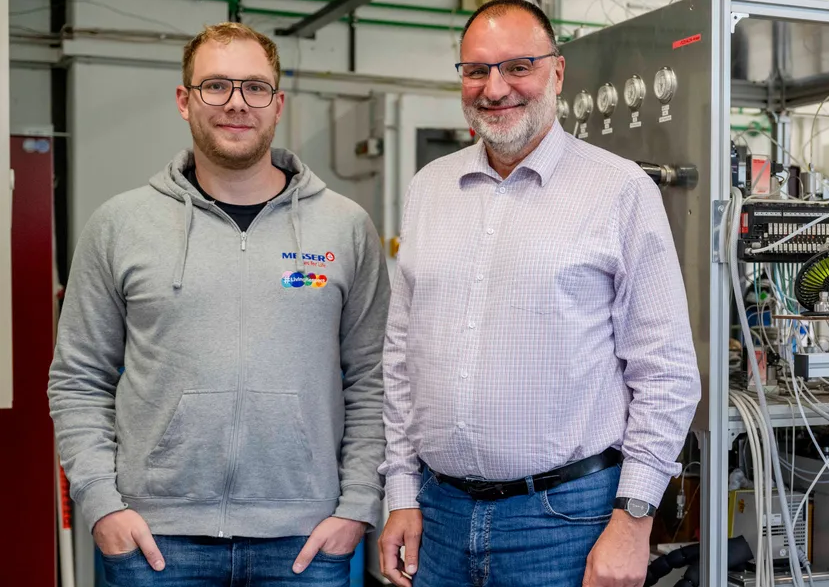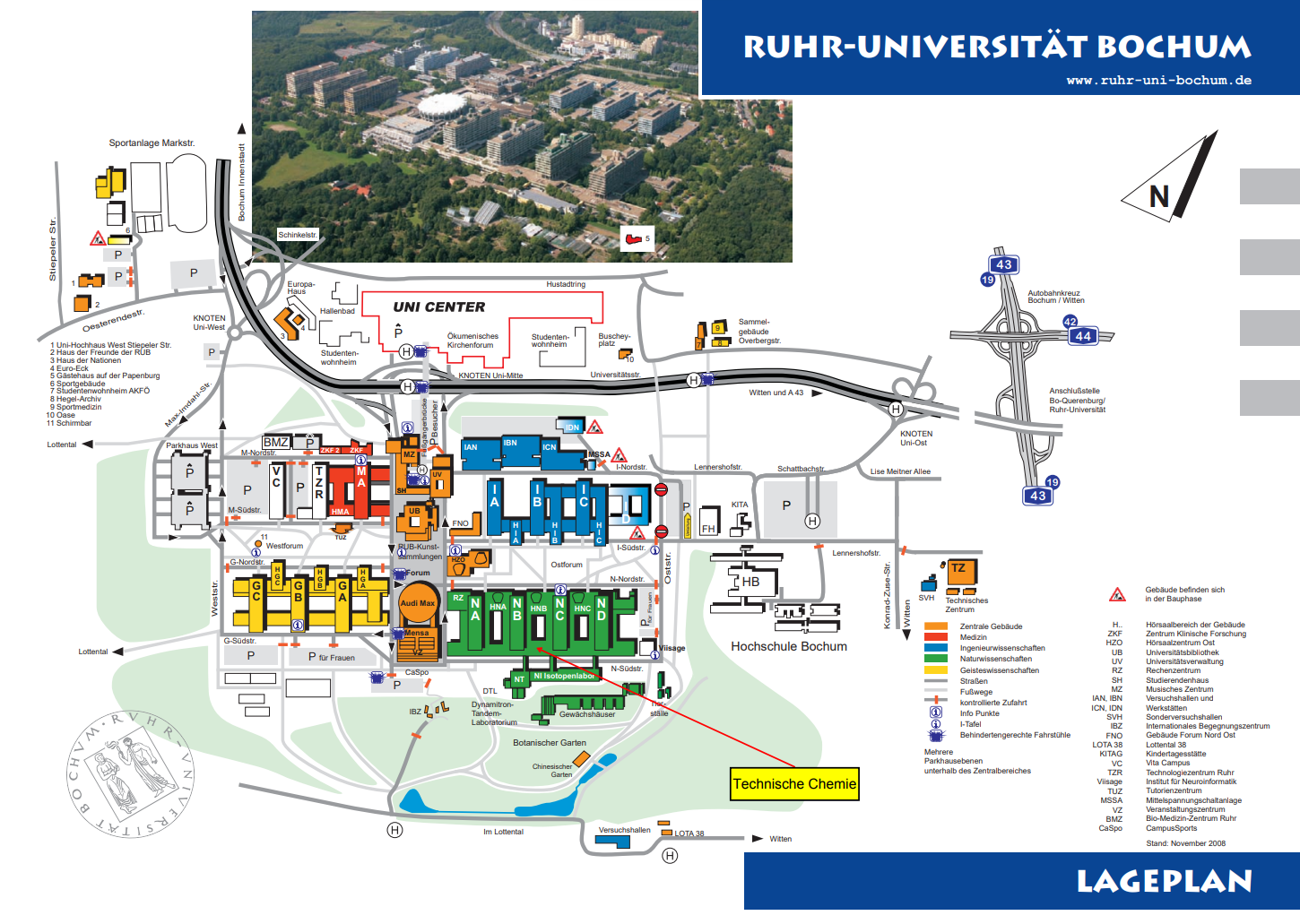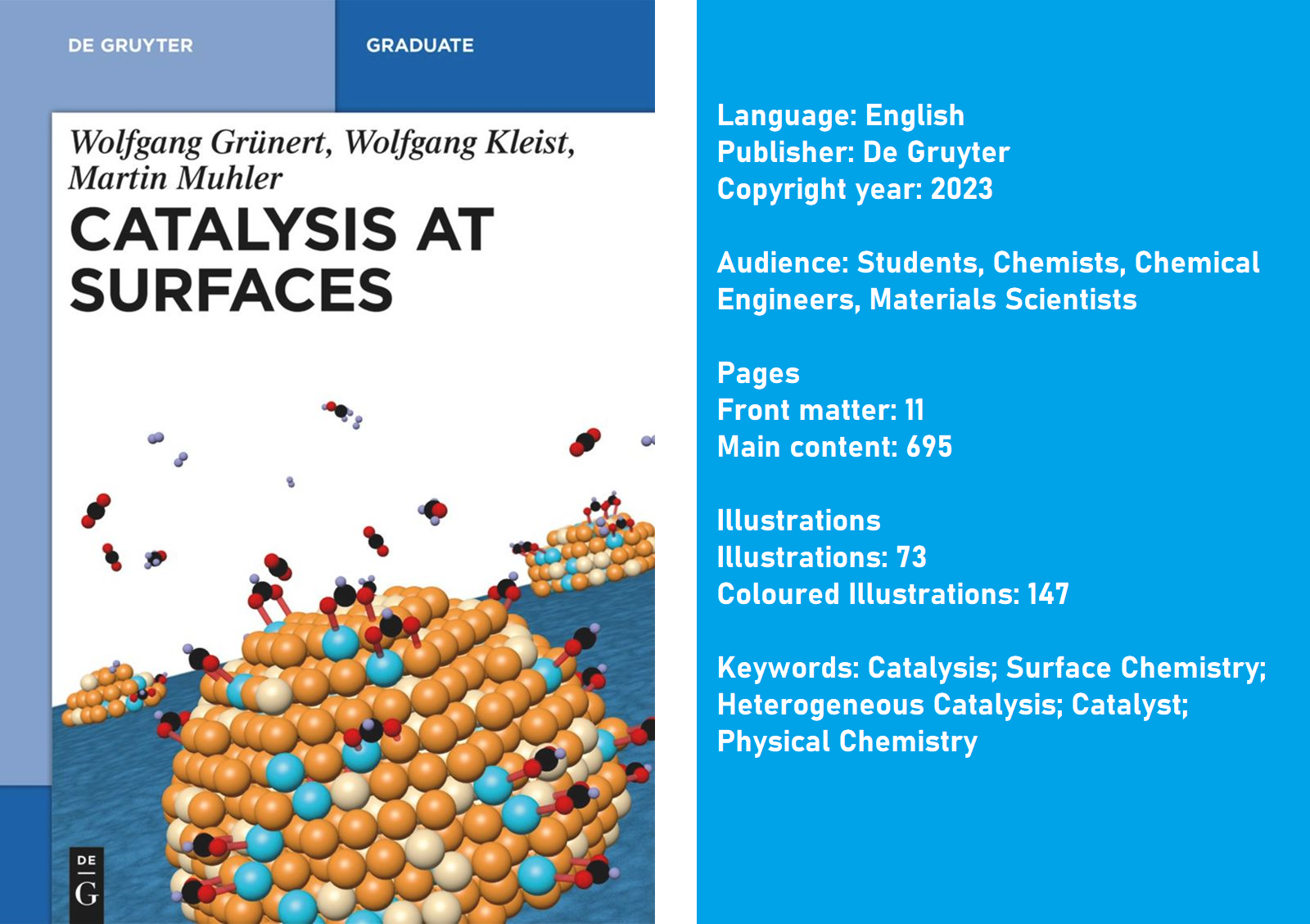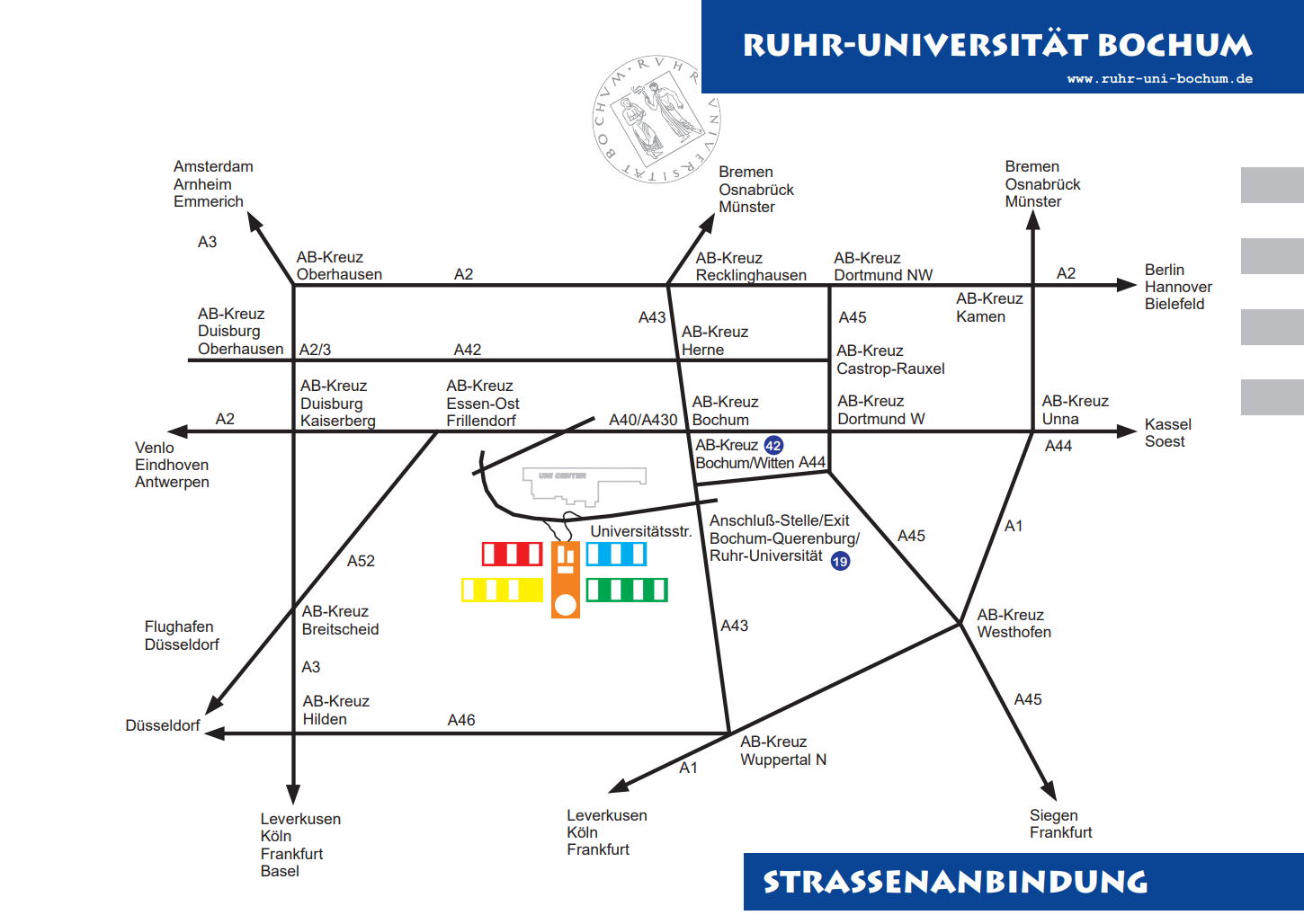
|

|
NEWSWasserstoff transportierbar machen Making hydrogen transportableAmmoniak gilt als vielversprechende Transportform für Wasserstoff. Allerdings braucht es auch ein effizientes Verfahren, um ihn zurück in Wasserstoff und Stickstoff umzuwandeln. Vor kurzem haben wir neue Erkenntnisse in die Funktionsweise eines Eisenkatalysators gewonnen, mit dem sich Ammoniak spalten lässt. (Photo: RUB, Marquard) Ammonia is considered as a promising form of transportation for hydrogen. However, an efficient process is needed to convert it back into hydrogen and nitrogen. Recently, we have gained new insights into the functioning mechanism of an iron catalyst that can be used to split ammonia. (Photo: RUB, Marquard) |

|

Prof. Dr. Martin Muhler - Industrielle Redoxkatalyse
Prof. Dr. Martin Muhler - Industrial Redox Catalysis
Heterogene Katalysatoren sind für die großindustrielle Produktion unverzichtbar und bilden auch zahlreiche Anwendungen in Raffinerien, bei der Energiewandlung und im Umweltschutz. Bislang beruhte ihre Entdeckung und Optimierung oft dem Trial-and-Error-Prinzip. Es gibt nur wenige Beispiele, in denen ein umfassendes Verständnis ihrer Wirkungsweise auf atomarer Ebene erreicht wurde. Heterogeneous catalysts are essential for the majority of all chemical processes in industry. In addition, they find numerous applications in refineries and in energy conversion, and they help to protect the environment. Nevertheless, their discovery and their optimization has often been based on trial and error, and there are only a few cases, in which a complete understanding on the atomic level was achieved. Der Lehrstuhl betreibt Grundlagenforschung auf dem Gebiet der heterogenen Katalyse. Die wissenschaftliche Herausforderung ist die Aufklärung der Reaktionen auf atomarer Ebene und deren Zusammenspiel mit der komplexen Oberflächenchemie katalytisch aktiver Festkörper. Die untersuchten Reaktionen gehören zur industriellen Redoxchemie. Die Reduktionskatalyse umfasst die Methanol-, Fischer-Tropsch- und höhere Alkoholsynthese unter Verwendung von Synthesegas unter Hochdruckbedingungen sowie die Hydrierung von ungesättigten organischen Molekülen. Die Oxidationskatalyse konzentriert sich auf die selektive Oxidation von Alkoholen in der Gasphase und in der Flüssigphase. Vor einiger Zeit sind wir in die Elektrokatalyse mit kohlenstoffbasierten Materialien, die heterogenen Photokatalyse und in die Plasmakatalyse eingestiegen. Die Flüssigphasenoxidation und die Elektrokatalyse erfordern ein tieferes Verständnis von solvatationsbezogenen Phänomenen. The Laboratory of Industrial Chemistry performs fundamental research in heterogeneous catalysis. The scientific challenge is the elucidation of the reactions on the atomic level and their interplay with the complex surface chemistry of catalytically active solids. The investigated reactions belong to industrial redox chemistry. Reduction catalysis comprises methanol, Fischer-Tropsch and higher alcohol synthesis using syngas (CO, CO2, H2) under high-pressure conditions, and the hydrogenation of unsaturated organic molecules. Oxidation catalysis focuses on the selective oxidation of alcohols in the gas phase and in the liquid phase. Recently, we entered the fields of electrocatalysis using carbon-based materials, heterogeneous photocatalysis, and plasma catalysis. Liquid-phase oxidation and electrocatalysis require a deeper understanding of solvation-related phenomena. |

Prof. Dr. Bastian Mei - Energie- und Umweltkatalyse
Prof. Dr. Bastian Mei - Energy and Environmental Catalysis
The chemical transformation of small abundant molecules and bio-based compounds is essential for sustainable development of various industrial sectors. In line with the Global Goals, our research creates fundamental knowledge essential for the development of catalytic materials and their integration into emerging process concepts for energy conversion systems, and contributes to industrial decarbonization and process circularity. We combine our knowledge in physical chemistry and engineering to study complex multiphase (solid/gas/liquid) catalytic reaction systems stimulated by (solar) light or electrical energy. Moreover, we integrate thermal energy or other stimuli to synergistically improve catalytic performances. Reactions of interest include water oxidation, production of oxidizing chemicals, hydrogen generation, selective alcohol oxidation, oxidative decarboxylation of carboxylic acids and purification of (industrial) waste streams using metal oxides and carbon based compounds. The chemical transformation of small abundant molecules and bio-based compounds is essential for sustainable development of various industrial sectors. In line with the Global Goals, our research creates fundamental knowledge essential for the development of catalytic materials and their integration into emerging process concepts for energy conversion systems, and contributes to industrial decarbonization and process circularity. We combine our knowledge in physical chemistry and engineering to study complex multiphase (solid/gas/liquid) catalytic reaction systems stimulated by (solar) light or electrical energy. Moreover, we integrate thermal energy or other stimuli to synergistically improve catalytic performances. Reactions of interest include water oxidation, production of oxidizing chemicals, hydrogen generation, selective alcohol oxidation, oxidative decarboxylation of carboxylic acids and purification of (industrial) waste streams using metal oxides and carbon based compounds. |
KONTAKTCONTACT |
||
|---|---|---|
| Prof. Dr. Martin Muhler | Prof. Dr. Bastian Mei | SekretariatSecretary's office |
|
Lehrstuhl für Technische ChemieLaboratory of Industrial Chemistry Ruhr-Universität BochumRuhr-University Bochum Universitätsstraße 150 Gebäude NBCF 04/690NBCF 04/690 44801 Bochum Tel: +49 234 32 28754 E-mail: martin.muhler@rub.de |
Lehrstuhl für Technische ChemieLaboratory of Industrial Chemistry Ruhr-Universität BochumRuhr-University Bochum Universitätsstraße 150 Gebäude NBCF 04/686NBCF 04/686 44801 Bochum Tel: +49 234 32 24121 E-mail: bastian.mei@rub.de |
FrauMs. Mareike Rohlf Lehrstuhl für Technische ChemieLaboratory of Industrial Chemistry Ruhr-Universität BochumRuhr-University Bochum Universitätsstraße 150 Gebäude NBCF 04/690NBCF 04/690 44801 Bochum Tel: +49 234 32 28754 Fax: +49 234 32 14115 E-mail: ltc@techem.rub.de |
LAGEPLAN - WEGBESCHREIBUNG SITE PLAN - DIRECTIONS |
NEUES LEHRBUCH NEW TEXTBOOK |
|

|

Dieses neu erschienene Lehrbuch vermittelt die Grundlagen und alle relevanten Aspekte der Katalysatorsynthese, Charakterisierung und Anwendung in geeigneten Reaktoren.
weiter...
This newly published advanced textbook provides the fundamentals and all relevant aspects of catalyst synthesis, characterization and application in suitable reactors.
more...
|
|

|
||